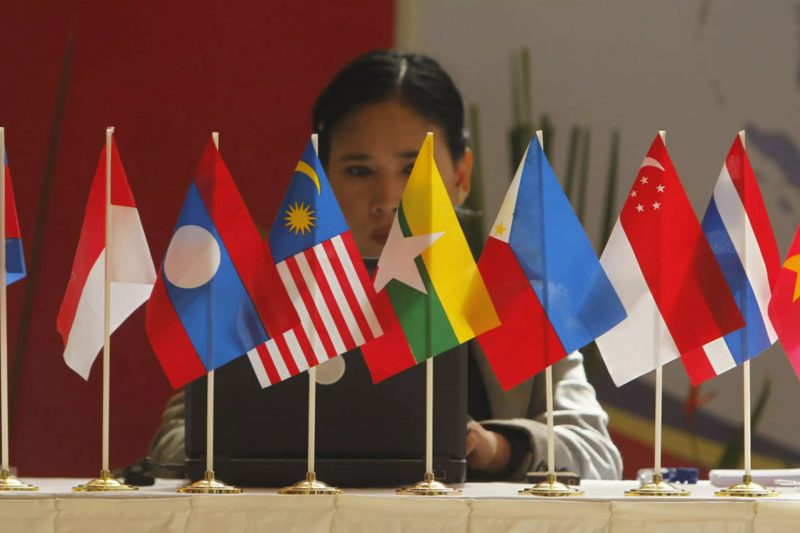ASEAN is at the center of a complicated geopolitical situation as US-China relations evolve.
The bloc’s strategic importance has only increased because of the ongoing tensions between these global powers. This has forced member states to analyze their diplomatic and economic relations carefully.
Also Read: China Helping ASEAN Countries To Ditch The US Dollar
Deciphering US-China Relations: ASEAN’s Strategic Role
Malaysia’s Approach to Engaging Both Powers
Malaysian Prime Minister Anwar Ibrahim has recently made a statement covering his country’s stance on the situation by saying:
“While I maintain excellent relations with the United States, Japan, and (South) Korea, I think for Malaysia and for the region, it is better to continue to engage with China.”
His perspective shows the broader sentiment within ASEAN, as member states seek to maximize the benefits of having relationships with both superpowers.
Anwar continued by saying:
“We will continue to engage and consider the United States as an important ally and at the same time enhance our collaboration with China.”
ASEAN-China Negotiations on South China Sea
The South China Sea dispute remains a critical issue influencing ASEAN-China relations. Fortunately, an important step towards resolving this longstanding conflict has been made.
China and ASEAN have agreed to work towards signing a nonaggression pact in three years. This aims to prevent any territorial disputes from escalating into armed conflicts.
Also Read: ASEAN: Trade With China Hits $300 Billion, Increase 8.5% in 2024
What Are the Implications for Regional Stability?
The latest diplomatic balancing act by ASEAN is expected to have implications at almost every level of society, and regional stability.
The bloc’s efforts to bring both the US and China to the negotiation table are commendable. That said, some critical challenges come with the territory, such as maintaining neutrality and protecting national interests simultaneously, which is not easy but required.
The Role of External Powers
The involvement of other external powers like the US will continue to affect regional relations. Japan is an important US ally, and they see China’s growing influence as a possible threat.
Also Read: ASEAN Countries Increases U.S. Exports, Ditch China in 2024
ASEAN must maintain unity and use the bloc’s power to navigate these complex relationships. Our future hangs in the balance.
The bloc’s strategic decision in the following years will impact the entire Asia-Pacific region and global geopolitical landscape.





